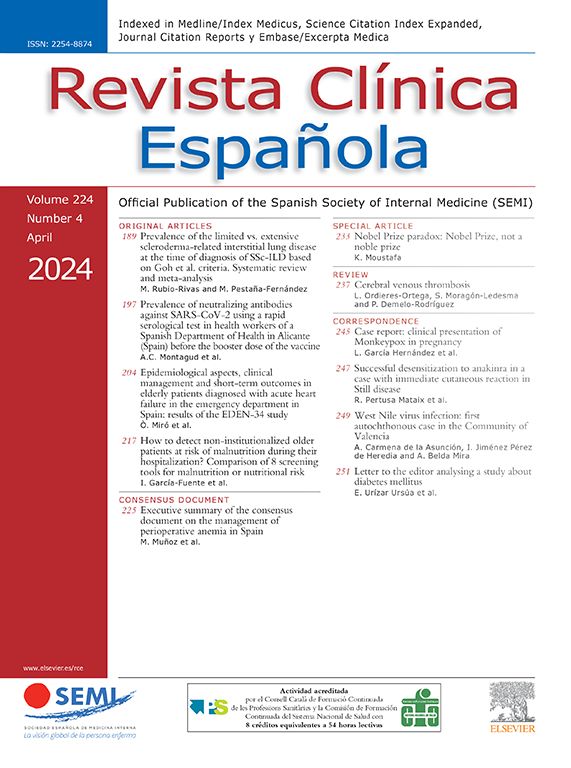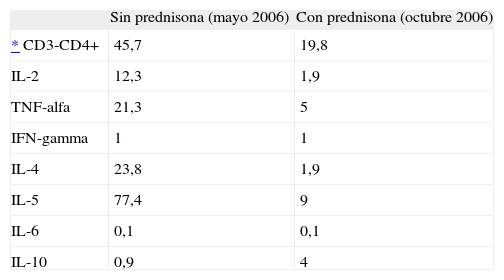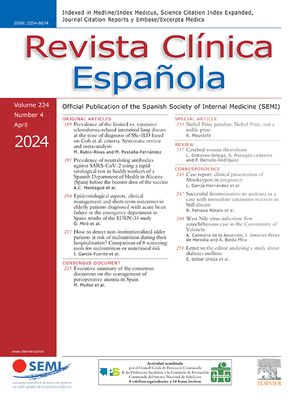El síndrome hipereosinófilo (SHE) es un grupo heterogéneo de procesos raros caracterizados por un aumento prominente y sostenido de eosinófilos en sangre y daño orgánico. Se deben excluir otras causas de hipereosinofilia. Avances recientes en biología molecular y citogenética han permitido caracterizar diferentes subtipos. Se describe un caso de la variedad linfoide.
PacienteVarón filipino de 46 años que consulta por lesiones cutáneas, fiebre, conjuntivitis, adenopatías y eosinofilia prominente.
ResultadosEl estudio de poblaciones linfocitarias en sangre periférica revela una población aberrante de linfocitos T (LT) CD3-CD4+ productora de interleucina 5 (IL-5). Se confirmó la clonalidad del TCR mediante PCR.
ConclusionesLa variedad linfoide del SHE está caracterizada por una expansión clonal de LT no maligna que produce IL-5, de comportamiento indolente, pero que puede evolucionar a linfoma T periférico. Se describe el primer caso de variedad linfoide publicada en nuestro país y se revisan las características de esta variedad.
Hypereosinophilic syndromes (HSS) are a rare group of heterogeneous disorders characterized by prominent and persistent eosinophilia and organ dysfunction. Secondary causes of eosinophilia must be excluded. Recent advances in molecular biology and cytogenetics have permitted the characterization of different subsets of hypereosinophilic syndrome. We describe a patient with the lymphocytic variant.
PatientA 46-year old male Philippine patient presented skin lesions, fever, red eyes, enlarged lymph nodes and marked eosinophilia.
ResultsLymphocytic phenotyping by flow cytometry analysis was performed on peripheral blood and an aberrant population of T lymphocytes CD3-CD4+ producing interleukin 5 was found. TCR gene rearrangement using PCR amplification confirmed T cell clonality.
ConclusionsThe lymphocytic variant of the hypereosinophilic syndrome is a primitive lymphocytic disorder characterized by a non-malignant T cell population expansion producing eosinophilopoietic cytokines, with an indolent clinical course but that can transform into a peripheral T lymphoma. We report the first case of such a variant published in our country and review the characteristics of this variety.
Article
Diríjase desde aquí a la web de la >>>FESEMI<<< e inicie sesión mediante el formulario que se encuentra en la barra superior, pulsando sobre el candado.

Una vez autentificado, en la misma web de FESEMI, en el menú superior, elija la opción deseada.

>>>FESEMI<<<










